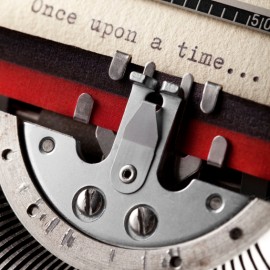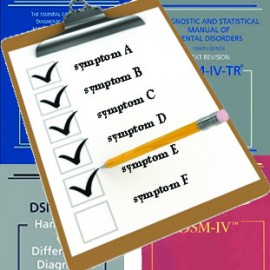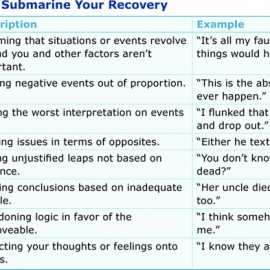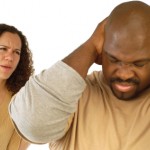Articles
Retrain Your Brain: Scripting
Language– the words we choose for our self-talk– has a powerful influence on our brain function. Words can help us re-shape the cycle of feelings, impulses, and behaviors.
Topics: co-occurring disorders, cognitive behavioral therapy, mental illness, personality disorders, rational emotive therapy, Recovery Tools, therapeutic models, tools for recovery, trauma
Addictive Disease: Why Semantics Matter — and Why They Don’t
But to start opening those doors, someone has to be in the room — that is, they have to be identified (by themselves, preferably, but frequently by others such as the court system or family members) as possible/probable addicts.
Topics: alcoholism, diagnosis, disease, signs and symptoms
Slips and How to Avoid Them
Treatment generally includes identifying high risk situations and making a plan for dealing with them. Benny knew his sales meetings were high-risk; he just wasn’t willing to give them up without a trial. Three slips later, he acknowledged reality.
Topics: anxiety, barriers to recovery, emotional issues, maintaining sobriety, Recovery Tools, relapse, relaxation, tools for recovery
Customer Service Secrets of the Stars
Inpatient customers are at your facility 24 hours a day, seven days a week. During that time they may be interacting with counselors, group leaders, techs, medical staff and other clinical folks for several hours a day. But the hospitality staff are there all the time.
Topics: administration, customer service, inpatient treatment, marketing
Happy Customers
Exceeding — not just meeting — a particular customer’s expectations is the key to happy customers. You don’t have to be perfect. You just have to be better than the customer expects, at that moment in time.
Topics: customer service, marketing
Early Recovery: Twelve Pitfalls
If you notice any of these signs, it’s a good idea to make an appointment right away, talk to your group leader before/after a group session, or bring them up in your support or step group.
Topics: barriers to recovery, defense mechanisms, emotional issues, enabling and provoking, maintaining sobriety, outpatient treatment, Recovery Tools, relapse, signs and symptoms, tools for recovery, treatment
Cultivating Calm
It helps to think of anxiety as simply a part of our body’s natural response to stress. It’s a protective response with both physiological and psychological aspects.
Topics: anxiety, Recovery Tools, relaxation, tools for recovery
Eight Ways to Drive Yourself Nuts
They’re common to many forms of mental illness, and they can afflict most of us at one time or another during our lives, even if we don’t suffer from any disease at all.
Topics: barriers to recovery, rational emotive therapy, Recovery Tools, tools for recovery
What IS a “Recovery-Friendly” Community?
Recovery-friendly communities encourage education, provide support for open communications, and reject assumptions that perpetuate stigma.
Topics: maintaining sobriety, promoting recovery, recovery support groups, stigma, systems
The Biology of Anxiety
Anxiety isn’t just unpleasant. It’s a prime contributor to poor decision-making. The more anxious you feel, the more likely you are to act on impulse, without weighing or even considering the consequences.
Topics: anxiety, emotional issues, maintaining sobriety, relaxation



















